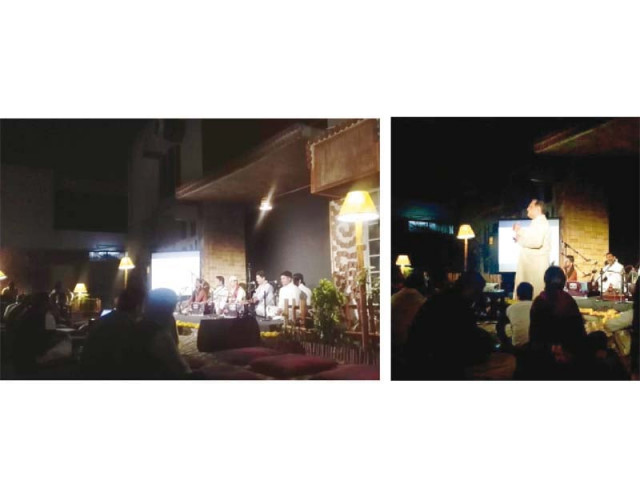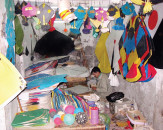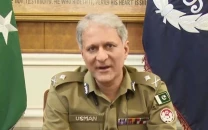History of qawwali: ‘Qawwali is an expression of love, doesn’t have to be religiously motivated’
Event featured a 90-minute qawwali performance by Ghayoor Moiz Mustafa and brothers

Modern day qawwali associated with the likes of Nusrat Fateh Ali Khan can be traced back to Hazart Ameer Khusro, a Sufi musician and poet in the 12th century. PHOTO: EXPRESS
He was giving a presentation on the history of the art of qawwali at an event organised by Olomopolo media.
He said the modern day qawwali associated with the likes of Nusrat Fateh Ali Khan could be traced back to Hazart Ameer Khusro, a Sufi musician and poet in the 12th century. He could be considered as the father of the modern day qawwali, he added.
Adnan said the popularity of qawwali and its importance in the region’s culture was owed to the Sufis. They used qawwali to spread their message of peace and equality among the lower castes including the ‘untouchables’ and Dalits.
Regarding the origins of the performing art form, he said the oldest qawwalis available today had been written around 3,200 years ago in Vedic Sanskrit. “Vedic chants are considered among the oldest oral traditions,” he said.
Adnan said as Muslims started settling in the region they also introduced the devotional practice of Zikr – continuous recitation of the names of Allah Almighty and that of the Holy Prophet (peace be upon him) in a specific tune and tempo. He said Zikr ceremonies later evolved into Sama, featuring dance and music performances, poetry recital and drinking rituals.
The event also featured a 90-minute qawwali performance by Ghayoor Moiz Mustafa and brothers’ group. The group represents the 27th generation of the qawwali maestro Samat Bin Ibrahim. The performance featured all seven genres of qawwali – hamd, manqabat, qual, geet, tarana, qaseeda and rang.
Renowned singer Tahira Syed was the chief guest at the occasion.
Published in The Express Tribune, March 21st, 2016.


















COMMENTS
Comments are moderated and generally will be posted if they are on-topic and not abusive.
For more information, please see our Comments FAQ